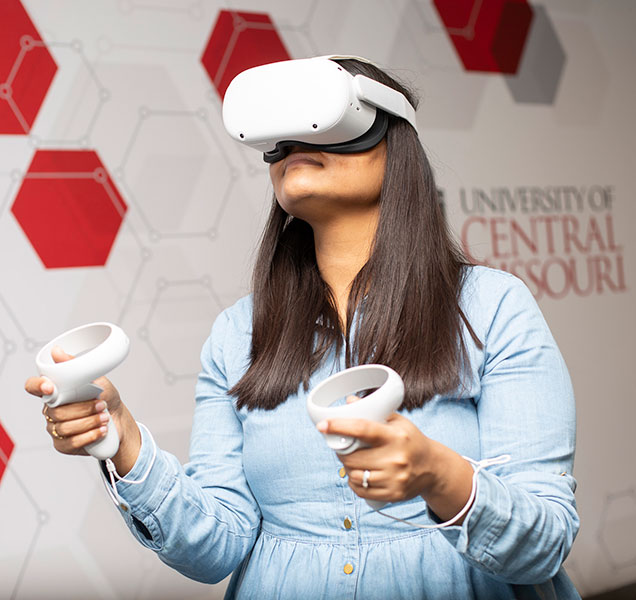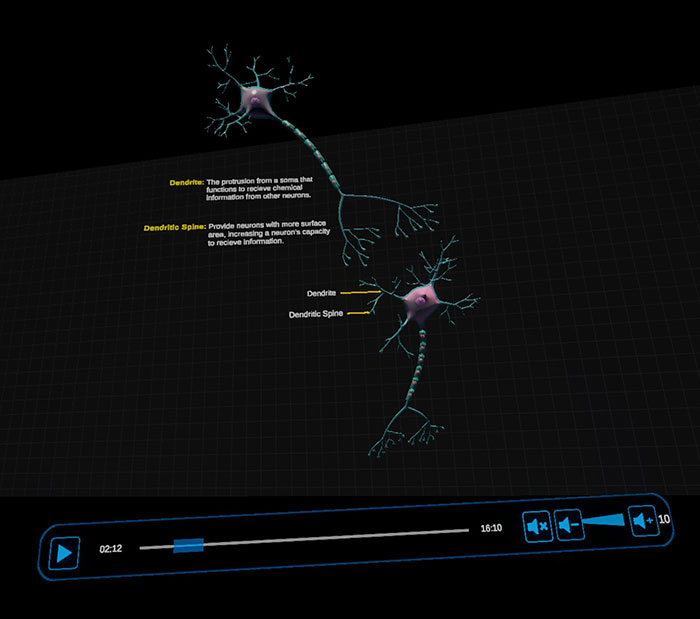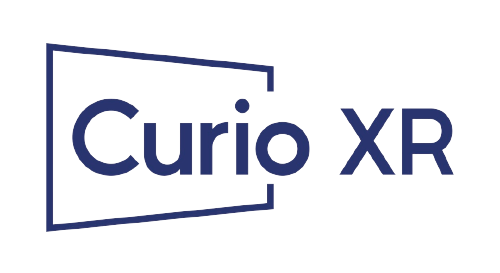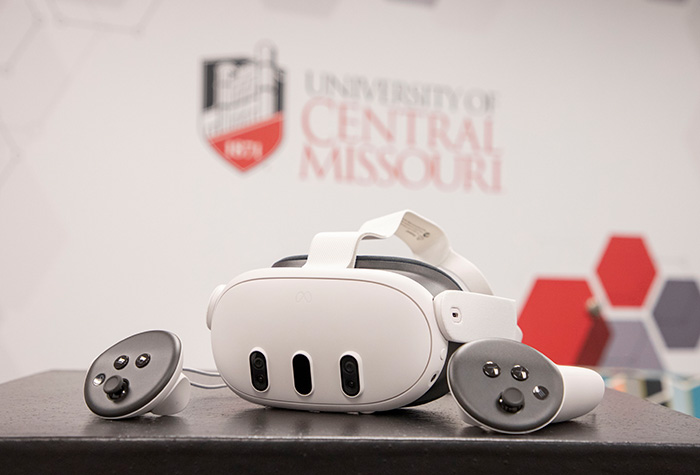Extended reality (XR) refers to an immersive environment or experience that incorporates computer-generated elements, including virtual worlds, which can be combined with the real physical world. XR encompasses various technologies, such as virtual reality (VR), augmented reality (AR), and mixed reality (MR).
Breadcrumb

DLII Extended Reality Services
What is Extended Reality?
Examples of XR include 360 videos, panoramic 360 scenes, 2D/3D models and virtual reality (VR) augmented reality (AR) education apps.
DLII staff can work with faculty to develop custom 2D and 3D models of objects or locations, 360 videos and 360 scenes with navigation and information. These VR models and scenes may be accessed with multiple device types, including smartphones, tablets, Chromebooks, laptops, or traditional desktop computers. A VR headset is not required to interact with a VR model or scene. VR headsets are available to use while in the lab and faculty can have students come to the lab to access approved content.
The XR Manager can also assist faculty in researching and recommending VR apps that are currently available to incorporate into class content.
Virtual Studio Tour
Follow the pulsing arrows to explore two cutting-edge XR studios at the University of Central Missouri! Your journey will take you to both the UCM Lee’s Summit XR Studio and the DLII XR Studio, located in the JCKL Library. As you navigate through these innovative spaces, you'll discover a variety of immersive technologies and learn how XR (Extended Reality) can transform the educational experience. From interactive simulations to virtual labs, this tour will showcase practical applications of XR that can enhance curriculum across disciplines. Get ready to experience the future of learning firsthand!
360-degree video
Experience a unique, immersive perspective from Dr. Corey Werner’s Weather and Climate class through this 360-degree video footage. As part of a hands-on lab exercise, the class launched a weather balloon to collect atmospheric data. The DLII team then processed the footage, making it accessible both online and in VR headsets. This allows students to relive the experiment as if they were right there traveling with the balloon, enhancing their understanding of meteorological processes in a dynamic and engaging way. Click and drag to explore the full panoramic view and immerse yourself in the science of weather observation!


This past summer, Adam Runyan and the XR Studio collaborated with Curio XR to develop an innovative SimViewer 3D video designed to help students visualize and better understand the intricate process of neuron communication. By transforming complex neurological concepts into an immersive experience, this project enhances learning in a way that traditional methods cannot. Now part of the Curio XR learning platform, this cutting-edge simulation is accessible to anyone with the Curio XR application on a Quest headset. Dive into the world of neuroscience and explore how neurons transmit signals through this engaging, high-quality 3D experience.
 Both XR Studio locations have equipment for faculty and students to use.
Both XR Studio locations have equipment for faculty and students to use.
- Quest 2 and Quest 3 VR headsets
- zSpace 3D laptop
- PCVR Desktop computers
- GoPro MAX 360
- iPad Pro








